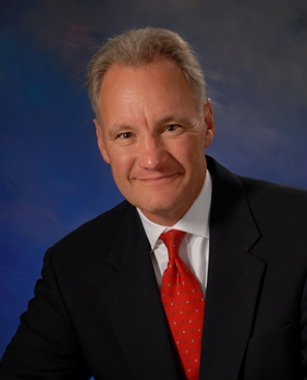Redeeming Blood 3 - Robert Godfrey
In really, magnificently beautiful poetical language, this Psalm (49) talks about what death is all about. Their graves are their homes forever. Their dwelling places to all generations, though they called lands by their own natives. Even the rich who are powerful enough to conquer lands and give those lands their own names--they die like everybody else. Even those who can build splendid monuments to themselves to be buried in--even if it's a pyramid 4,000 years old in Egypt, they are Indian and braves that are forever their homes.
For as verse 14 says, "Like sheep, they are appointed for Sheol, death shall be their shepherd." Death shall be their shepherd. "Their form shall be consumed in Sheol with no place to dwell." This is very solemn, isn't it? Do you notice this is a Psalm written by the sons of Cora? It must have been an interesting family to be part of. Cora's family. How that story must have been told from generation to generation about Cora and his faith, and how Cora went down alive to Sheol for his disobedience of the Lord. How these verses must have echoed in the mind of the sons of Cora as they wrote that they are forebearer in his defiance of God, had gone down alive into that nether world to live forever and never to see the light.
Now what conclusion does the Psalmist draw from this meditation? At first glance, it would seem to be the rather, we might say, stoic conclusion that his oppressors die and we die--get over it. That's sort of Calvinist comfort, you know--things could be worse, cheer up. We';re all going to die, so get over it. Of course, that's not the ultimate conclusion of this Psalm. But the Psalmist in meditating on death wants to press our human helplessness in the face of death.
Think of those verses 7 and 8. "Truly no man can ransom another or give to God the price of his life. For the ransom of their life is costly and can never suffice that he should live on forever and never see the pit." We can uncomfortably be forced to think about that no matter how rich a person might be. The richest among us don't have enough money to prevent the death of one they love when death comes as the shepherd. No ransom can be paid. No price is sufficient. All will go down to death.
With that reality the Psalmist wants to shake us and to grip us that we would face it and not avoid it. The death rate is 100% given enough time. I'm not sure I believe that. I have no trouble looking out and thinking all of you are going to die, but it's very hard for me to really think I'm going to die. This Psalm wants us to come face to face with that, and only then, only then to turn to that glorious verse, verse 15, But God will ransom my soul."
But God wi ll ransom my soul. The most powerful, the most wealthy, the most glorious being in human history, the most ruler might be, is powerless before the face of death. But what no human being can do, God can do. That's what this Psalm wants to remind us. That's the essential wisdom that this Psalm would teach us. But God is not defeated by death.





















